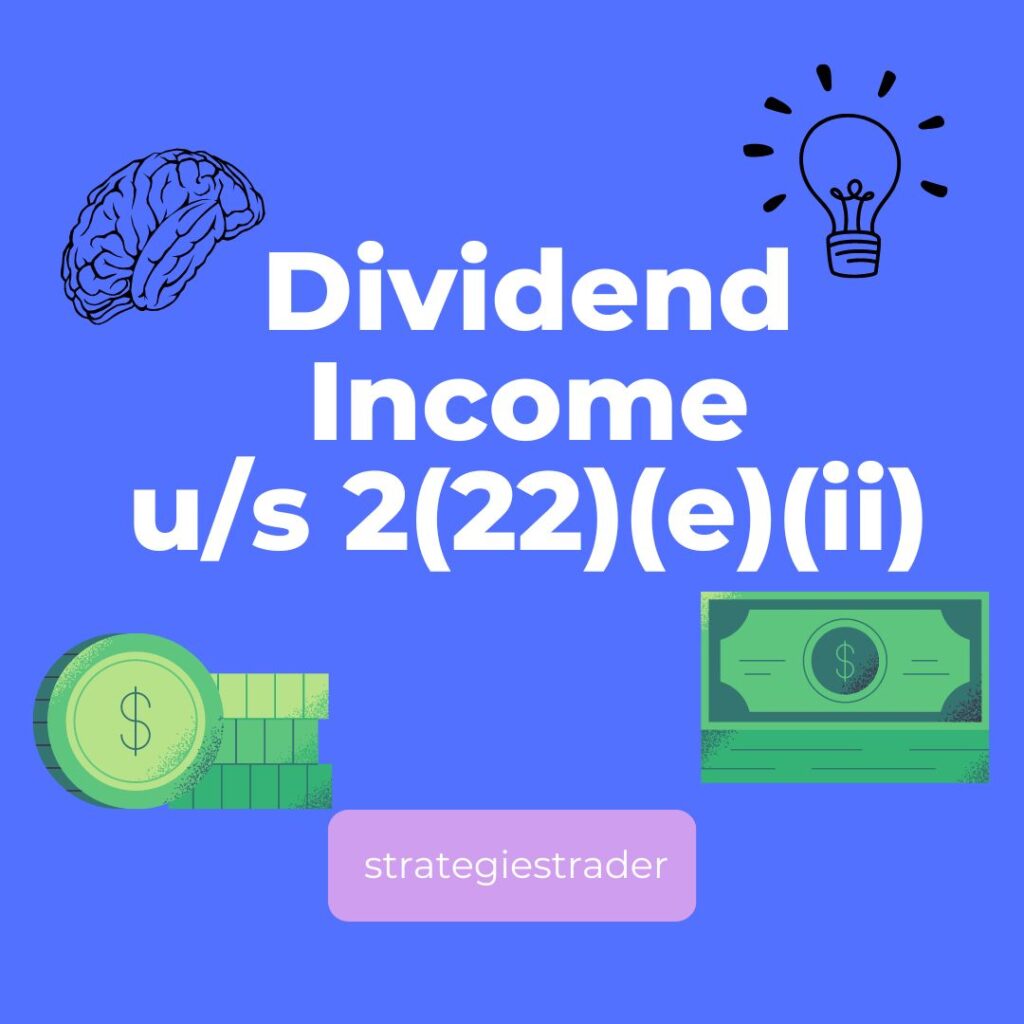Introduction
In the realm of financial independence and security, dividend income stands as a beacon of hope and stability. The mere thought of receiving regular payouts from investments can evoke feelings of excitement, security, and a sense of accomplishment. This article delves into the emotional dimensions of dividend income u/s 2(22)(e)(ii), exploring how it shapes lives beyond financial transactions.
Understanding Dividend Income u/s 2(22)(e)(ii)
Dividend income u/s 2(22)(e)(ii) refers to the distribution of profits by companies to their shareholders, creating a unique bond between a company’s success and an investor’s financial well-being. This emotional tie is more profound than mere financial gain; it represents the acknowledgment of an investor’s contribution to a company’s growth.
The Impact of Dividend Income on Shareholders
Imagine the thrill of checking your bank account and finding a dividend payout waiting for you. It’s more than just money; it’s a validation of your investment decisions and a tangible reward for your trust in a company’s potential. This emotional connection often leads to a stronger allegiance to the company and a deeper sense of belonging.
Navigating the Tax Implications
While the emotional benefits of dividend income are undeniable, understanding the tax implications is equally vital. Balancing the joy of receiving dividends with the responsibility of meeting tax requirements can be a learning experience. This journey towards financial literacy fosters a sense of empowerment and control over one’s financial future.
Strategies to Maximize Dividend Income
Exploring strategies to maximize dividend income isn’t just about numbers; it’s about designing a roadmap to achieve personal financial goals. The process of researching, selecting, and investing in dividend-paying companies cultivates a sense of purpose and direction, fueling one’s commitment to long-term financial success.
Investing in Companies that Offer Dividends
Investing in dividend-yielding companies requires patience and a discerning eye. The emotional reward comes not only from the financial gains but also from the knowledge that you’ve invested in companies that share their success with you, their shareholder. It’s an emotional partnership built on mutual growth.
The Emotional Connection to Passive Income
The concept of passive income is emotionally liberating. The idea that money can work for you, even while you’re not actively engaged, opens doors to experiences and opportunities that were once distant dreams. This emotional shift from active to passive income is a turning point in one’s financial journey.
Achieving Financial Goals through Dividend Income
Setting financial goals and achieving them through dividend income generates a sense of accomplishment that transcends monetary value. The realization that your investments are paving the way for your aspirations adds emotional weight to each dividend earned.
Embracing Financial Freedom and Security
Financial freedom is an emotional state that many aspire to. Dividend income plays a pivotal role in this pursuit, providing a steady stream of funds that can support a desired lifestyle without constant financial worries. The emotional relief and security this brings are immeasurable.
The Joy of Receiving Regular Dividend Payouts
Receiving a dividend payout is like opening a gift, one that you’ve earned through careful investment decisions. The joy that comes with these regular surprises is a reminder that your commitment to investing is paying off in both tangible and emotional ways.
Overcoming Challenges in Pursuing Dividend Income
The journey to dividend income isn’t devoid of challenges. Market fluctuations, economic uncertainties, and the need for continuous learning can be daunting. However, overcoming these challenges fosters resilience and emotional strength, equipping investors to navigate future hurdles with confidence.
Building a Diverse Dividend Portfolio
Diversification is the cornerstone of a robust dividend portfolio. As you spread your investments across different companies and sectors, you’re not only managing risk but also embracing the emotional satisfaction of nurturing a diverse and thriving investment landscape.
The Role of Patience and Long-Term Vision
Patience is a virtue, especially in the realm of dividend income. The emotional discipline required to stay committed to long-term goals cultivates a sense of resilience and perseverance. This emotional journey shapes not only your financial outcomes but also your character.
Empowerment and Confidence in Financial Decisions
Becoming proficient in managing dividend income instills a sense of empowerment and confidence in financial decisions. The ability to analyze, strategize, and execute investment plans empowers individuals to take control of their financial destinies, evoking feelings of strength and capability.
Conclusion
In the world of finance, dividend income u/s 2(22)(e)(ii) isn’t just about numbers and tax codes. It’s a journey that intertwines emotions, aspirations, and accomplishments. From the joy of receiving payouts to the empowerment of financial literacy, the emotional tapestry of dividend income enriches lives in ways that go beyond the balance sheet.
FAQs
Is dividend income guaranteed?
Dividend income isn’t guaranteed; it depends on the company’s performance and decisions.
How can I start investing in dividend-paying companies?
Research companies with a history of consistent dividends and start with a well-informed investment plan.
Can dividend income replace a regular paycheck?
While dividend income can provide a steady stream of funds, it’s advisable to have a diversified income strategy.
What is the significance of a diverse dividend portfolio?
A diverse portfolio mitigates risk and enhances the potential for stable dividend income.
Where can I learn more about managing dividend income?
You can find valuable resources online, from financial blogs to investment courses. Remember to verify the credibility of sources.
